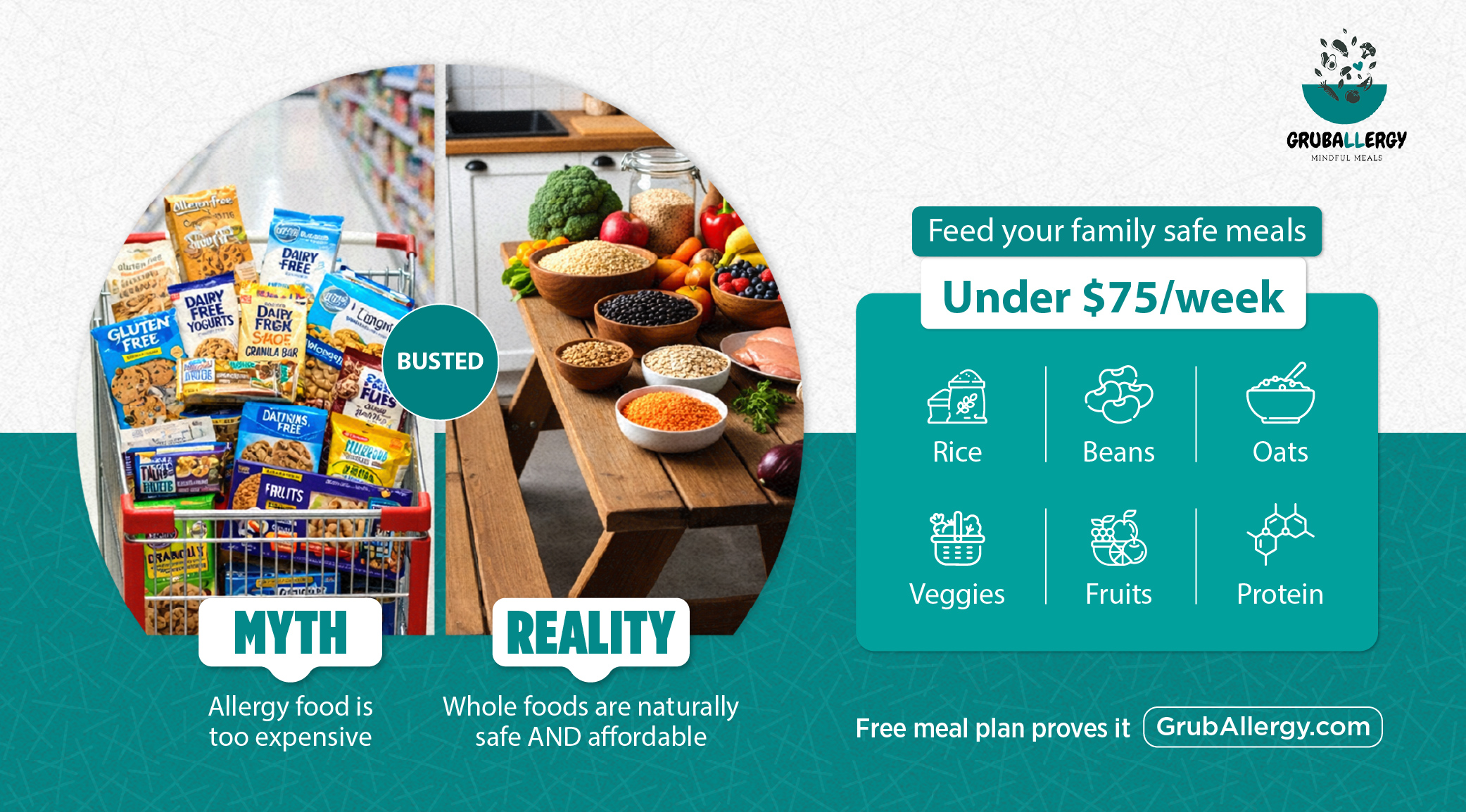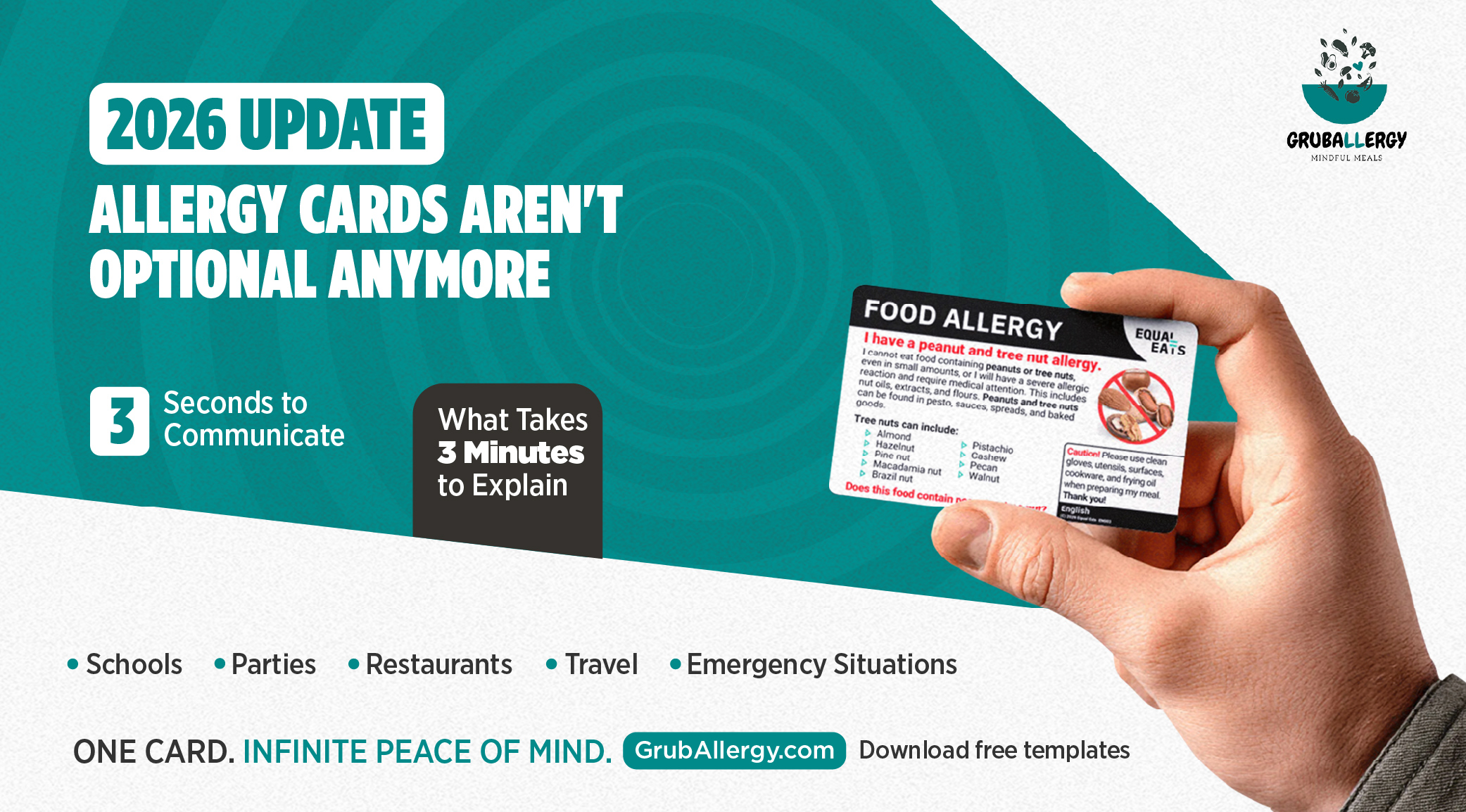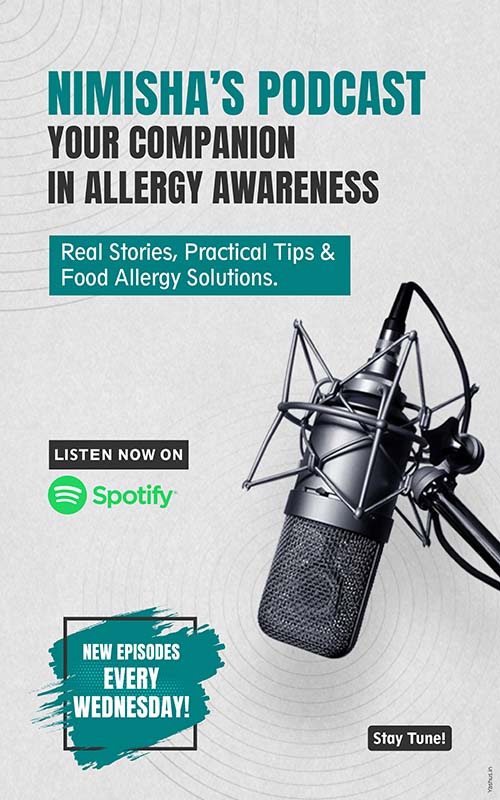.jpg)
In today's world, children's allergies are a growing concern. With the rise of food allergies, environmental sensitivities, and asthma, it is essential to ensure that babysitters, nannies, and caregivers are properly trained to handle these situations. Providing allergy-safe childcare not only guarantees the well-being of children but also helps in creating a safer environment for them. This blog will explore the importance of training caregivers for food allergies and offer a structured approach to ensure that they are equipped with the necessary knowledge and skills to provide safe and effective childcare for kids with allergies. In addition to training, introducing caregivers to easy, allergy-free recipes like nut-free snacks, dairy-free meals, or gluten-free treats that can further support a safe and inclusive environment for all children.
Understanding the Importance of Allergy-Safe Childcare
Allergies can have serious, and sometimes life-threatening, consequences if not managed properly. The Centers for Disease Control and Prevention (CDC) estimates that 1 in 13 children in the U.S. has a food allergy, and many more suffer from other allergies such as asthma or environmental sensitivities. For children with allergies, even a small exposure to an allergen can lead to severe reactions such as anaphylaxis, a life-threatening condition that requires immediate medical attention.
For parents of children with allergies, finding a babysitter, nanny, or caregiver who is knowledgeable and proactive about allergy policy in childcare is a top priority. Caregivers must understand not only the specific allergies a child has but also the correct response procedures in case of an allergic reaction. Therefore, babysitter allergy training is crucial in preventing allergic reactions and ensuring the safety of children in their care.
Step 1: Comprehensive Education on Allergies
The first step in allergy training for caregivers is to provide comprehensive education on the various types of allergies children may have. This includes food allergies, environmental allergies (such as pollen or pet dander), insect sting allergies, and drug allergies. Caregivers should be familiar with common allergens, symptoms of an allergic reaction, and the potential severity of these reactions.
-
Types of Allergies: Caregivers should be made aware of the specific allergies the child in their care has, whether it's a food allergy like peanuts or dairy, environmental allergens like pollen, or any other type of sensitivity.
-
Recognizing Symptoms: Training should emphasize how to recognize signs of an allergic reaction. Symptoms can range from mild (hives, rash, itchy throat) to severe (swelling of the face or throat, difficulty breathing, or loss of consciousness). Caregivers should be able to quickly identify these symptoms to act swiftly.
-
Emergency Situations: Caregivers must be trained in how to respond in case of a severe allergic reaction, including how to use an EpiPen. It is also important for caregivers to be trained in CPR and first aid for emergencies. Instruction should also include how to administer EpiPen, and understand how you use an EpiPen in real-life situations.
Step 2: Familiarizing with Allergy Action Plans
Every child with allergies should have an individualized allergy action plan that outlines the specific allergens, symptoms, and steps to take in case of an allergic reaction. This plan should be created by the child’s healthcare provider in collaboration with the parents. Nanny allergy training must include thorough briefing on this plan before starting their childcare role.
-
Review the Plan: Caregivers should be given a copy of the allergy action plan and instructed on the proper procedures to follow if an allergic reaction occurs. This includes what medications to administer, how to give an EpiPen, and when to seek emergency medical help.
-
Emergency Contact Information: The allergy action plan should contain critical contact information, such as the parents' phone numbers, the child's doctor, and emergency services. Caregivers should have easy access to this information at all times.
-
Regular Updates: Allergies can change over time, so caregivers must be informed about any updates to the child’s allergy profile or action plan. Parents should provide regular updates if a child develops new allergies or if the severity of existing allergies changes.
Step 3: Practical Training on Managing Allergens
Once caregivers understand the basics of allergies and the child's allergy action plan, it is important to provide them with hands-on training in allergen management. This includes strategies to minimize the risk of exposure to allergens in the child’s environment.
-
Food Preparation and Label Reading: Caregivers should be trained to read food labels carefully and understand how to avoid cross-contamination. They should be taught how to prepare allergen-free snacks and meals and how to properly store food to prevent allergic reactions.
-
Creating an Allergy-Safe Environment: Caregivers should be trained to identify and eliminate allergens in the home environment. For example, if a child has a pet allergy, caregivers must ensure that the child does not come into contact with pet dander. In addition, caregivers should know how to keep a child’s play area, bedroom, and outdoor spaces free from allergens like pollen, dust, and mold. This is a critical part of implementing a food allergy policy in childcare.
-
Handling Medications and Emergency Kits: Caregivers should be trained to store and administer allergy medications correctly. This includes the proper epipen training for babysitters, antihistamines, and inhalers for asthma. They should also know how to recognize when these medications need to be administered and how to keep the child’s emergency kit up to date.
Step 4: Communication and Collaboration with Parents
Ongoing communication between parents and caregivers is essential to ensuring that allergy management is consistent and effective. Regular updates and clear lines of communication should be established from the start.
-
Pre-Caregiver Training Meeting: Before beginning care, caregivers should meet with the parents to discuss the child’s allergies, the action plan, and any special considerations. This ensures that everyone is on the same page regarding the child’s needs and aligns with a sound daycare allergy policy.
-
Regular Check-Ins: Caregivers should check in with parents periodically to discuss any changes in the child’s allergies, medication regimen, or symptoms. Parents should also feel comfortable discussing any concerns with the caregiver about how allergy management is being handled.
Step 5: Continual Education and Refresher Training
Allergy training for caregivers is not a one-time task but an ongoing process. Caregivers should receive continual education on allergy-safe childcare practices, as new allergens and techniques for management may emerge. This ensures that caregivers stay informed and prepared to handle any potential allergy-related emergencies.
Conclusion
Training babysitters, nannies, and caregivers to provide allergy-safe childcare is an essential aspect of safeguarding children with allergies. A structured approach that includes education on allergies, the use of allergy action plans, allergen management, and clear communication with parents will ensure that caregivers are fully equipped to handle any allergy-related situations. With the right babysitter allergy training, caregivers can offer safe and effective childcare for kids with allergies, giving parents peace of mind knowing that their child’s allergies are in good hands. Through proper preparation, we can reduce the risk of allergic reactions and ensure that children with allergies are cared for in a safe, supportive, and nurturing environment.
FAQ
-
An allergy-safe childcare plan should include the child’s specific allergens, symptoms of a reaction, emergency procedures, medication instructions (like how to use an EpiPen), and emergency contact information.

-
Yes, epipen training for babysitters is strongly recommended. Babysitters should understand how to administer an EpiPen and act quickly in case of a severe allergic reaction.

-
Caregivers should learn proper food prep and storage techniques and understand how to give an EpiPen if an allergic reaction occurs due to cross-contamination.

-
Refresher sessions should be held at least annually or when there are updates to the child’s allergies or daycare allergy policy.

-
A good allergy policy in childcare includes clear procedures for managing allergens, training requirements, communication protocols with parents, and regular reviews of allergy action plans.

You may also like
Leave a Reply

Get a free consultation with GrubAllergy.
Share your child's food allergy history, and let us guide you with expert advice on managing and navigating food allergies with confidence.



.png)







